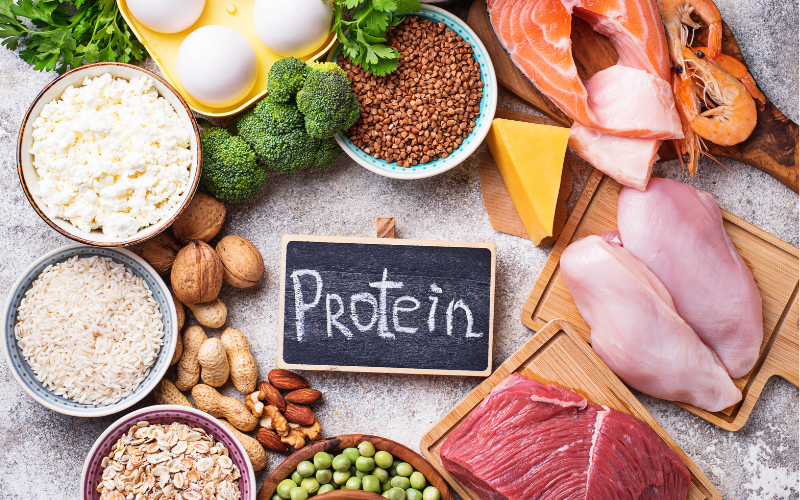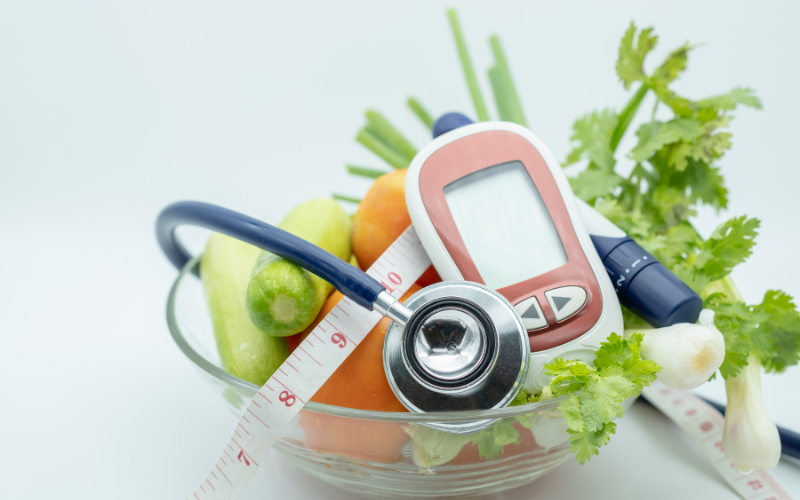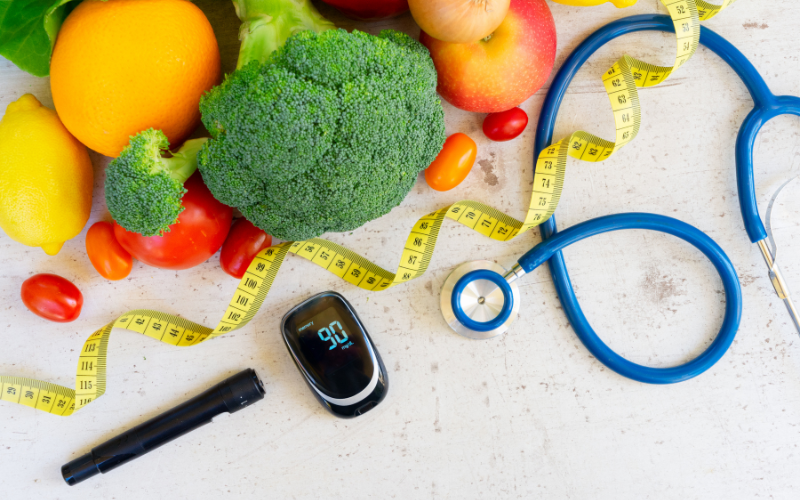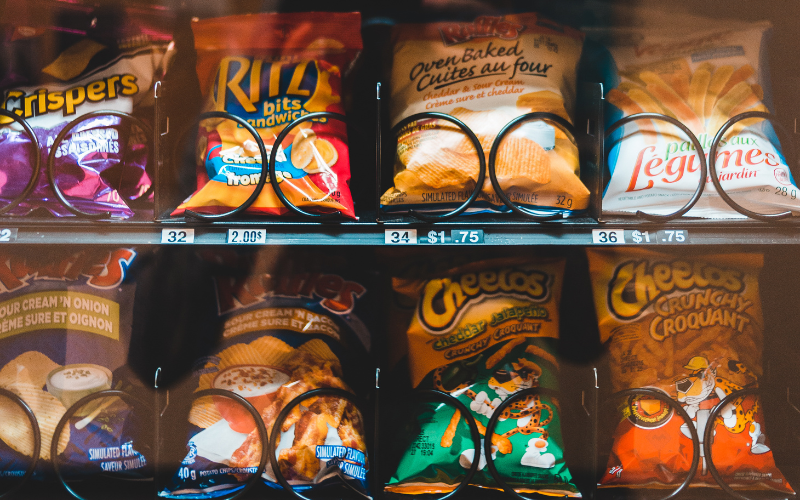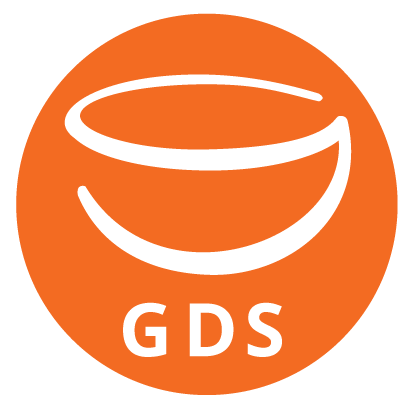The Wonderful World of Menopause

If you’re a woman in your 30's, 40’s or 50’s, you’ve probably given some thought to what awaits as you transition to peri menopause and menopause. Perhaps you’re already at that stage or out the other side yet still reeling from the unwanted body changes and annoying side effects.
Every woman has a different experience. Hopefully you’ll just sail through it without much discomfort but one very common issue for women in peri and menopause is weight gain, particularly stubburn belly fat. In this article we cover the issue of menopause and weight gain, the link to inflammation and what that means, as well as simple and easy diet and lifestyle tips so your life can carry on as normal.
Take me straight to the Fit + Fab After 40 Plan
When does peri menopause and menopause happen?
Menopause officially occurs once a woman hasn’t had a menstrual period for 12 months. The average age of menopause is around 51 years, however, it is preceded by peri menopause which can start up to 10 years earlier. For some women, peri menopause kicks off in their mid to late 30's. These hormonal fluctuations symptoms can include changes to menstruation, moodiness, headaches, poor sleep, hot flushes and night sweats, anxiety and weight gain.
What is it with menopause and weight gain?
Research suggests that women gain, on average, around 1kg per year during midlife, regardless of their body weight beforehand. What we also know is that in pre-menopause, belly fat accounts for around 5-8% of total body fat in women, but this jumps up to 15-20% in post-menopause. So, women are gaining weight and it’s mostly around their middle. Not good for the self-esteem.
4 main reasons for weight gain in over 40’s women
Hormone changes – Oestrogen is a potent anti-inflammatory factor so when levels decrease and testosterone levels rise during menopause, these changes drive inflammation in the body, which is linked to weight gain.
Appetite changes – during this time, a woman’s appetite hormones can be in flux. Ghrelin, the hunger hormone is higher and leptin, the hormone that signals you’re full becomes impaired. These changes can lead to increased hunger and overeating.
Stress – Let’s face it, it’s already exhausting managing kids, elderly parent plus working, a mortgage, and a marriage too! It all points to a busy and stressful time. And unfortunately, stress is also highly inflammatory.
Lifestyle factors – with all that going on, little wonder you’re not a gym junkie! It's common for women over 40 to have a drop in activity levels; loss of muscle mass; perhaps some unhealthy eating; and lack of quality sleep. Sadly, these all contribute to weight gain.
Why isn’t the diet working?
Unfortunately, exercise and calorie counting alone aren't enough. The real secret is to reduce your inflammation.
Chronic inflammation is widespread these days. A poor diet can cause it, so too can environmental toxins and stress. Plus as we now know, hormonal fluctuations are also to blame. Women over 40 usually tick multiple pro-inflammatory boxes. Chances are that inflammation has been sabotaging your weight loss efforts. But luckily, there are things you can do to reduce inflammation and lose weight pretty easily.
9 top tips to reduce inflammation and lose weight
By focusing on an anti-inflammatory diet rather than just calories and exercise you’ll happily survive menopause and stepping onto your bathroom scales will be a delight. Here are our top tips:
- Cut out all the processed and fast food in your diet. The reason for this is that processed food contains a huge amount of highly inflammatory ingredients, such as artificial flavours, colours, preservatives and additives; plus sugar, salt and fat. Eat a broad range of healthy wholefoods to nourish your body instead.
- Eat foods that are high in anti-oxidants to combat inflammation. Good choices are colourful vegetables and fruits, herbs, spices, and fatty fish with omega 3’s.
- Reduce portion sizes to prevent overeating and create a calorie deficit.
- Fill up on plenty of protein to supress hunger and encourage fat burning.
- Eat more fibre, which feeds healthy bacteria in the gut, and in turn helps lower inflammation.
- Try intermittent fasting which will not only promote fat burning but also improve your metabolic health markers. We’re referring to your blood sugars, cholesterol and blood pressure. Fasting is a win-win for weight loss and your overall wellbeing.
- Exercise, both cardio and resistance. This is important for burning calories but also to prevent the loss of vital muscle mass and bone mass at this stage of life.
- Reduce your stress load. Easier said than done but high stress will thwart your attempts to reduce inflammation and lose weight. Try to establish a new routine that involves calming activities that you enjoy - yoga, meditation and breathing, walking the dog, getting into nature, mindful eating. Also learn to say no to over-committing yourself or seek help if you’re feeling overwhelmed.
- Reduce your toxic load. There are plenty of simple, inexpensive things you can do to reduce your exposure to toxins in your environments. Zoe Bingley-Pullin’s article, Is your home poisoning you? is a fantastic resource for ideas.
If this all just sounds too hard, then thankfully Dietlicious now has an even easier solution! Check out the details of our Fit + Fab After 40 Diet Plan here.

